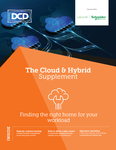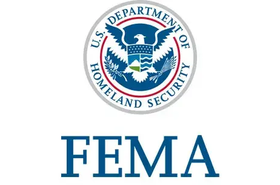This year has seen the big three public cloud providers ditching their data egress fees for customers exiting the cloud. A monumental move - paradigm shifting even? Well, no. But it does meet the bare minimum of upcoming standards and regulations.
The issue of competition and vendor lock-in with cloud providers has been ongoing. Over the last few years, we have seen Microsoft be the target of an antitrust campaign, led by OVHcloud and backed by cloud trade association CISPE. Among CISPE's members is AWS, another of the key cloud providers. Later that year, Microsoft adjusted the terms of its cloud computing service to avoid a full investigation.
Just one year later, however, Google accused Microsoft and Oracle of anti-competitive practices in a letter to the Federal Trade Commission, and around the same time, Oracle accused AWS of similar practices.
The issue has, in some ways, begun to feel like a playground spat. A "who hit who first." Isn't the point that everyone is hitting everyone?
Towards the end of last year the UK's Competition and Markets Authority officially launched an investigation into the competitive practices of the cloud computing sector based on a recommendation from communications regulator Ofcom.
The pressure was beginning to build in the cloud computing pot, and perhaps the final blow was the announcement of the EU Data Act, which came into force on January 11, 2024.
The act requires public and private cloud computing service providers to remove "obstacles to effective switching" between their own and competing cloud services, including commercial, contractual, technical, or organizational hurdles.
This includes common deterrents such as egress fees.
Google was the first of the cloud providers to make a move, announcing the removal of egress fees on the very same day the Data Act was established. A blog post from Amit Zavery, head of platform at Google Cloud, condemned the "restrictive and unfair licensing practices" that are a fundamental issue and that "certain legacy providers" leverage their software monopolies to create cloud monopolies that "lock in customers and warp competition."
According to Google's requirements, customers must fully exit the cloud platform and do so in 60 days.
AWS was next, taking the leap in on March 5, 2024. This announcement was slightly different, in that customers do not seem to have to completely sever ties with AWS, but they must be fully leaving a particular service or product behind. A week or so later, Microsoft followed suit, taking a similar stance as Google.
In a recent feature, DCD spoke to several players about what these announcements actually mean. The consensus seemed to vary between a "step in the right direction" to others arguing that the cloud providers are doing "something which has absolutely no meaning to 99.9 percent of their customers but satisfies the government."
The reason is that the issue isn't customers wanting to leave these cloud providers, it is the day-to-day charges that add up dramatically as customers use their services.
Corey Quinn of The Duckbill Group told DCD: "It's the ebb and flow of conducting business, while happily remaining AWS customers, that gets expensive. There's a reason that Netflix still has its entire own home-built content delivery network. They don't stream any of their movies out of AWS because even at their scale, the cost would be ruinous."
There is an inherent cost for moving data on the Internet, but the profitability margin that egress charges enable is significant. Vultr, a cloud provider that does not charge for data transfers, told DCD that they have cut prices on core services that mirror those of the major hyperscalers, and remain "wildly profitable."
While you might think that now all three of the cloud providers have made this move, the playground bickering would come to an end. It hasn't.
In AWS's announcement, the company argued "The biggest barrier to changing cloud providers continues to be unfair software licensing. Some IT providers impose licensing restrictions on their software that make it financially unworkable for their customers to choose a cloud provider other than them," reiterating that which Zavery said in the Google announcement.
Following the Microsoft announcement, Zavery tweeted: "Microsoft's decision to stop charging its customers exit fees is a step in the right direction. But to really support customer choice, it's time to address the greatest barrier: MSFT's restrictive and predator licensing that forces customers into Azure."
Perhaps notably, Microsoft did not address licensing issues in its announcement at all.
For a more in-depth look at the announcement and competition within the cloud computing sector, read the latest Cloud & Hybrid Supplement.







